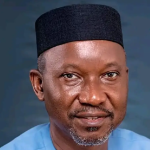Labour Party presidential candidate in the 2023 general election, Peter Obi, has decried the discrimination and hostility faced by Nigerian women in politics, citing Senators Ireti Kingibe and Natasha Akpoti-Uduaghan as examples of those enduring the harshest forms of opposition despite their electoral victories.
In a statement on his social media pages marking International Women’s Day, Obi emphasised that the occasion is a time to “honour women’s achievements and advance advocacy for their rights, opportunities, and empowerment.”
He highlighted this year’s theme, ‘For ALL Women and Girls: Rights. Equality. Empowerment,’ as a call to action, stressing that women’s rights must be protected to ensure national progress.
Obi lamented that women in Nigeria, despite their resilience, remain “trapped in cycles of poverty, with limited access to basic healthcare — marked by low neonatal care, high infant mortality, education, and other essential services.” He further noted that “among the millions of out-of-school children, girls account for the majority.”
Speaking on the country’s rising insecurity, he asserted that women are “disproportionately affected by violence, abductions, and other forms of insecurity.”
He further pointed to their declining representation in leadership, stating, “Despite their critical contributions to society, Nigerian women hold only 6% of leadership positions in the private sector, while political representation continues to decline, reaching its lowest point after the 2023 elections.”
Obi stressed that even for those who break through systemic barriers, the challenges remain relentless.
“Senator Ireti Kingibe and Senator Natasha Akpoti-Uduaghan are just two examples of women who, despite their electoral victories, continue to face the harshest forms of discrimination and hostility in our public space,” he said.
According to the statement, their experiences reveal a political system that “not only resists their inclusion but actively works to push them out.”
Obi, while calling for structural reforms, insisted that “without affirmative action to guarantee a minimum of 25% representation in all decision-making bodies—across all arms of government, both elective and appointive—women will remain excluded.”
The former governor of Anambra State added that the same principle should apply in the corporate world and other areas of national livelihood.
Obi further described prioritising girl-child education, particularly in disadvantaged regions, as a way to tackle inequality. “Aggressive investment in girl-child education—particularly in educationally disadvantaged areas—is essential if we are to break these cycles of inequality and underdevelopment,” he stated.
Reaffirming his commitment to advocating for women, Obi declared, “The time to act is now. Women are the backbone of our society, and the progress of our nation depends on ensuring they have equal opportunities to shape our collective future.”
ALSO READ FROM NIGERIAN TRIBUNE






